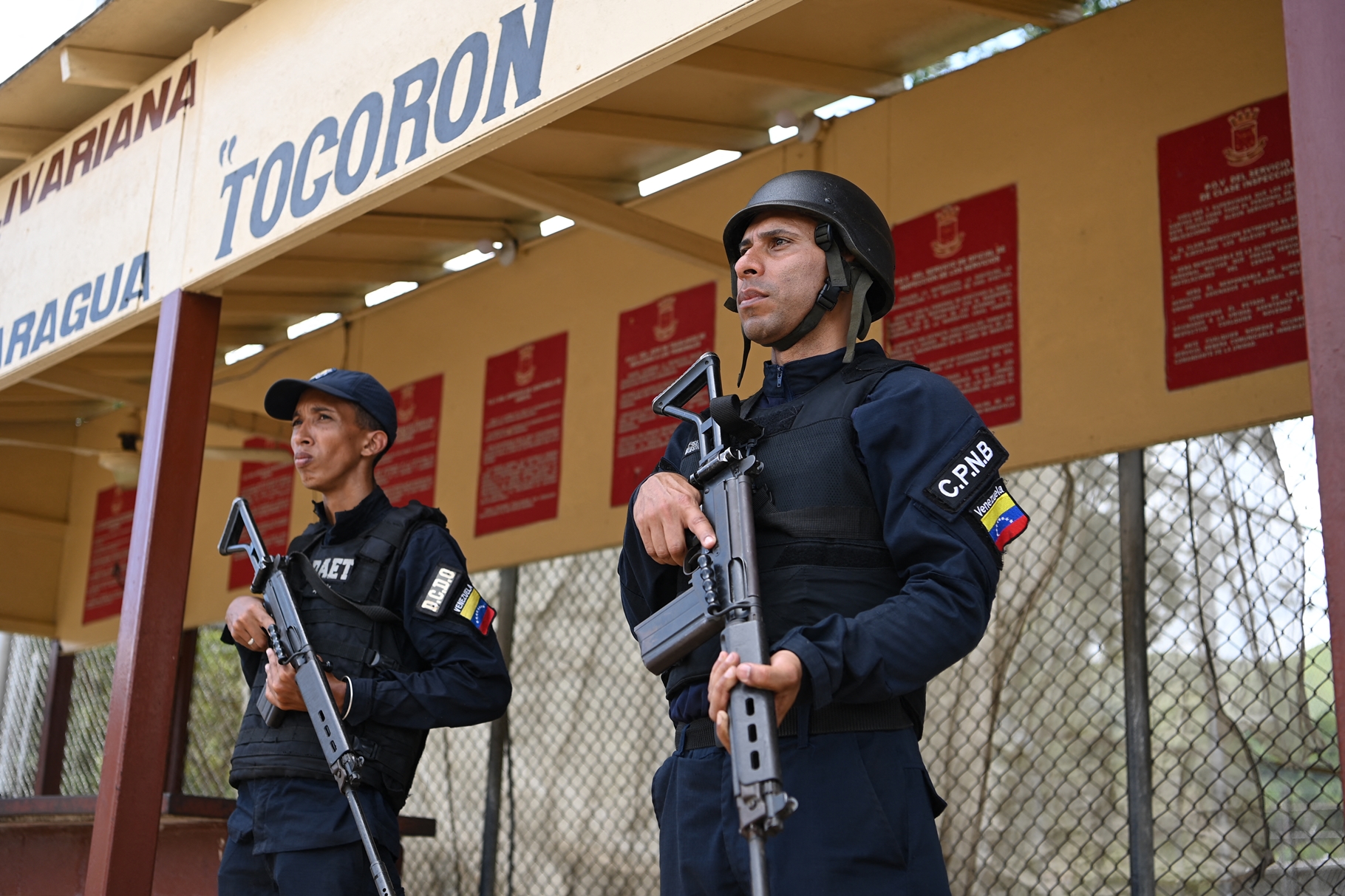Conditions of detained opponents during protests

The conditions of the opponents detained in the recent Post-election protests in Venezuela They generate concern and complaints from their families and human rights organizations.
More than 700 people were transferred to prisons such as Tocorón and Tocuyito, where conditions are inhumane, says the Venezuelan Prison Observatory.
What are the conditions of detained opponents?
In pre-trial detention centres, the Prison Observatory reports, opponents face equally critical conditions. They are overcrowded, some They sleep on mats on the floor and have no access to sunlight. since they were arrested.
Even during brief visits to bring them food, relatives report that prisoners are under extreme surveillance. There are also questions about whether the food and water sent to them is fully reaching the inmates.
Reports of alleged torture and ill-treatment are not isolated.
At the National Institute for Female Guidance, in Los Teques, Miranda state, detained women have sent desperate audios asking for help and reporting torture. This situation is particularly alarming.
The organization recalled that the Venezuelan State continues ignoring provisional measures of the Inter-American Commission on Human Rights to protect prisoners. This reflects a serious violation of its international obligations.
The climate of repression in Venezuela has affected not only political prisoners, but also their families, who must deal with fear and hopelessness, without guarantees of due process or respect for human rights of their loved ones.
Relatives, without information and with expenses to see them
The detainees They have not received visits nor have they had access to trusted lawyers, which leaves them vulnerable to possible abuse and mistreatment.
Relatives of political prisoners have reported that they have no information about their health status. In addition, they have to face high costs to try to see them, since They spend up to 182 dollars on transportation just to get to the prisons.
Many relatives, mainly mothers, are forced to sleep near prisons due to a lack of resources to provide accommodation, the NGO says. But they are not sure that they will be able to see the detainees or even confirm their whereabouts.
Independent journalism needs the support of its readers to continue and ensure that uncomfortable news that they don’t want you to read remains within your reach. Today, with your support, we will continue working hard for censorship-free journalism!
